|
Just before Advent, the Holy Father was leading his usual general audience when a six-year-old autistic boy, Wenzel, escaped from his family and wandered towards the pope. Blissfully unaware of the attention he was now attracting, young Wenzel scurried about Pope Francis and interacted with his surroundings—including a Pontifical Swiss Guard standing at attention nearby. After the boy’s mother explained the situation to the Holy Father, Pope Francis encouraged her to let him continue to play and then offered a beautiful teachable moment to the thousands gathered in the Paul VI audience hall:
This boy can’t talk, he is mute but he knows how to communicate. He knows how to express himself. He has something that made me think: He is free. An undisciplined freedom… but he is free. It made me think, “am I also free like that before God?” When Jesus says that we have to become like children He tells us that we have to have the freedom that a child has before his father. I think [Wenzel] preached to all of us. In referencing the call of our Lord to “become like children,” Pope Francis affirmed the unique dignity of even the youngest of human persons, namely their innate innocence, senses of wonder and curiosity, and free-spirited (and sometimes seemingly limitless) energy. Rather than characterizing the source of the “disruption” as having to be managed or handled—perhaps as parents of autistic children are all too familiar with in social situations—the pope celebrated the liveliness of the circumstances and explained that the faithful could spiritually benefit from imitating the blessed boy before them. Children are unconcerned with headlines, deadlines, schedules, requirements, and the expectations or the judgements of others. They often simply have wants they seek to fulfill and they set about observing and learning from their surroundings. They do not immediately know everything they should, and they recognize many of their needs require receiving help from another. When our Lord first called upon His disciples to become like children in order to enter the Kingdom of Heaven, He had called a child to Himself before those gathered around. I imagine the adults immediately thought to themselves, “What could I possibly gain from becoming a foolish, helpless youth? I am successful now, I know so much now, and not because I kept thinking or acting like a child!” Adults are all too susceptible to pride, be it of power, status, wealth, or knowledge. We get caught up in what the world (i.e. bosses, politicians, friends, and peers) expects of us in order to attain some level of temporal success. We entangle ourselves in the circumstances of situations, the reasons to do or not do something, and we may let too many external influences affect us unnecessarily. While intelligence or critical thinking itself is not a bad thing, adults may overthink certain situations a child would otherwise address head-on. For example, wanting to charitably help the less fortunate may tug at the heartstrings of a child to engage with that person; an adult, however, may become distracted from the needs of that person before him or her with personal judgements (or those of others around), embarrassment, selfishness, or any number of reasons to not offer assistance. Becoming like a child, then, would seem to be more pure and innocent. Think of the demands of Christianity: love God more than yourself, care for your neighbors, avoid sin and sacramentally repent whenever you fail, faithfully go to church, generously give to the needy, pray for your enemies, and serve others humbly before yourself. These commands are not meant to be burdensome or harsh except to whatever pride or selfishness we cling to. Adults may overthink their capabilities to do good and avoid evil when evaluating circumstances and how to act. To children, however, these acts are simply directives they should obey and not question or “situationalize.” This Christmas, let us renew our childlike faith by freeing our hearts and minds of prejudice and overcomplicated justifications. Our lives should be spent ministering and witnessing to God Who made each of us. In mirroring the innocent freedom of children, we can enhance our goodwill and loving charity towards others and increase our devotion and faith in God. Let us remember that our Heavenly Father loves us unconditionally: so much so that the Almighty sent His Son to dwell among us as a helpless Child. Questions for Reflection: Why did Christ say we must become like children in order to enter the Kingdom of Heaven? Have you ever learned an important truth or lesson from a child? For more resources to accompany you on your Advent journey, please click here.
0 Comments
"Christmas is joy." -Pope Francis What is the joy of Christmas? It is the joy of our encounter with Jesus Christ! There is plenty of manufactured joy that is fleeting, especially during the Christmas season. The joy that we experience in the love of Christ, though, is eternal. It is not simply happiness in a thing or a moment. Our joy is the Good News of salvation in Christ, the Incarnate One, Emmanuel, God-with-us. Look at a scene of the Nativity of Jesus Christ. In that humble moment, God comes as an infant child for one reason and one reason only, for us to have the opportunity for salvation. The rarely sung third verse of the Christmas carol, O Holy Night, reminds us of the joy and freedom that come from Jesus Christ: Truly He taught us to love one another; His law is Love and His gospel is Peace; Chains shall he break, for the slave is our brother, And in His name all oppression shall cease, Sweet hymns of joy in grateful Chorus raise we; Let all within us praise His Holy name! Christ is the Lord, then ever! ever praise we! His pow'r and glory, evermore proclaim! His pow'r and glory, evermore proclaim! We at the Catholic Apostolate Center pray that you may experience the joy, freedom, love, and peace of our Lord and Savior Jesus Christ at Christmas and always!
Advent often feels too short to me. Maybe it’s the fact that the fourth week usually isn’t a full seven days because of which day Christmas lands on that year. Maybe it’s the hustle and bustle of trying to get ready for Christmas and checking everything off our Christmas to-do lists that overwhelms the quiet and hopeful period that Advent is meant to be. The secular culture we live in insists that it’s “Christmastime” as soon as the Thanksgiving turkey is eaten, that the Twelve Days of Christmas happen whenever in December people feel like doing them, that the Christmas festivities end with Christmas, and that Christmas Day is a finish line toward which we should all be sprinting with credit cards in hand.
In our home, my husband and I have made a conscious choice to incorporate more of the liturgical calendar into our daily family life. For us, this means striving to separate Christmas from Advent: Our house during Advent is sparsely decorated until Christmas Eve, and we try to focus on Advent hymns like “O Come, O Come Emmanuel” instead of Christmas carols. And while at first it may seem like we are being Scrooges or intentionally avoiding Christmas cheer, maintaining Advent as a time of preparation helps us keep the liturgical Christmastide as a true season of celebration. It’s harder to maintain a sense of joy and wonder on Christmas Day when the festivities have already been going on for almost a month. The more difficult thing for us, however, is not figuring out how to avoid celebrating Christmas in Advent, but how to maintain the spirit of Christmastide in a culture that throws out its trees and its traditions on the morning of December 26. It’s been difficult for us to keep the party going, so to speak, when everyone else is drafting New Year’s resolutions and bemoaning all the cookies they ate. The liturgical Christmas season deserves more attention in our homes. The span of days from Christmas Day to the Baptism of the Lord is a string of feast days and holy days—including St. Stephen (December 26), the Holy Innocents (December 28), the Holy Family (Sunday after Christmas), the Solemnity of Mary Mother of God (January 1), and the feast of the Epiphany (traditionally January 6). Christmastide is built for celebration! Every year, as we approach the end of Advent, my husband and I ask ourselves: How can we embrace the celebratory season of Christmastide? Here are some of our ideas.
Question for Reflection: How are the Advent and Christmas seasons different for you? How do you celebrate Christmastide? “What should we do?” the crowds ask John the Baptist in this Sunday’s Gospel. This simple question permeates our earthly lives. What should we do with our time, treasure, and talent? What should we do in school, in our careers, in our community? What should we do with our lives? As we prepare to celebrate the Third Sunday of Advent, we can look to the Scriptures to help us answer this resounding question. In the readings for Sunday, we hear responses that can be boiled down to two words: “rejoice” and “give.” These words can guide not only our Advent journey, but our entire spiritual lives. “Rejoice in the Lord always,” St. Paul writes to the Philippians in the second reading. This is not a suggestion, but a command—one coming from a man who has experienced beatings, stoning, shipwreck, cold, hunger, and robbery. This call comes from a man who, by human standards, has no cause to rejoice. What, then, sets Paul apart from the average human person? A relationship with Jesus Christ. It is this relationship, which nothing can break, that enables us to rejoice regardless of our circumstances. During this time of year, it is fitting to be merry and to rejoice. Decorations and lights fill stores and homes, festive music plays, and social engagements abound. The world rejoices over the coming of our Savior on Christmas Day. He has already come and opened the doors of salvation, and he continues to invite each generation into this wonderful gift as we celebrate his birth each year. But what does this rejoicing look like for Christians? Herein lies the second piece of advice from this Sunday’s readings: rejoice through giving. This, too, is something our culture thinks about during the Advent and Christmas seasons. We participate in “Secret Santa” gift exchanges with friends or colleagues; our parishes collect gifts for families in need; we exchange gifts on Christmas Day with family and loved ones. The prayer attributed to St. Francis says, “it is in giving that we receive.” Do we not feel this in a special way at Christmas time? The capacity with which we rejoice cannot exist in its fullness without our capacity to give. The more fully our “kindness is known to all,” as St. Paul wrote to the Philippians, the more fully we experience the true joy that comes from Christ. Our acts of service make us more capable of truly rejoicing. The Christian life is one of both prayer and action. In the Gospel, John the Baptist directs the Jews asking him “what should we do?” to works of mercy--Catholic Social Teaching in seed form. “Whoever has two tunics should share with the person who has none. And whoever has food should do likewise…Stop collecting more than what is prescribed…Do not practice extortion, do not falsely accuse anyone, and be satisfied with your wages,” he responds to the crowds, tax collectors, and soldiers. These seem like simple, almost obvious, directions. But we need to be reminded of them again and again. This Advent, may we be “filled with expectation” as we rejoice in Christ. As we seek to answer “what should we do?”, let us ask for the intercession of St. Paul and St. John the Baptist to more fully rejoice by modeling kindness through our daily acts of service and charity. Questions for Reflection: How are you rejoicing this Christmas season? How can you participate in the spirit of giving? After being blessed with the opportunity to study abroad, I realized I had a lot of prep-work before actually stepping foot in Rome. Before I found myself settled and adjusted to life in Italy, there was much discussion amongst my family and friends about the possibility of leaving home for the semester to do something unknown and probably a little challenging. It involved taking inventory of packed luggage and making sure I had all my paperwork in order – over and over and over again. There were goodbyes to be said and nerves to quell – all for the bigger and extremely beautiful pursuit of this adventure abroad. Being a student in Rome, with a faith life that begs to be fed with inspiration and experience, I have found myself smiling ear-to-ear both in Saint Peter’s Square as Papa Francesco drove by in the Popemobile and also on my knees, alone in a little chapel that has really become my home-away-from-home. Something that is often on my mind and recently discussed in the Synod is vocational discernment. “Vocational Discernment” is one of those phrases that is often more of an unknown idea rather than a reality being lived. In simple terms, I consider vocational discernment to be an alert willingness to hear and accept God’s will. And now that we have a definition, the next question is: How does one even go about this? I believe the answer is very similar to my process of preparing to study abroad or maybe to that of applying to college or even to searching for a job. However, many – myself included – often find these tasks to be obstacles, not opportunities. I’ve come to learn that discernment can be just as exciting as your next adventure. I was recently able to attend a youth presentation to the pope in Paul VI Hall. After many dance routines, witness talks, and musical performances, Pope Francis delivered a short speech in which he expressed the following: “You won’t find yourself in a mirror or the screen of your phone, so get up and find beauty in nature, family, friends, and the faith.” One of the most important aspects of discernment is communication. Just as I spent many hours talking to my parents, sister, and best friends about the opportunity to go abroad, I spend quite a bit of time in prayer each day. I use prayer as a way to open my heart to God, sharing desires, fears, hopes, and struggles—just as you would recall your day to your parent or friend over dinner or Snapchat—to seek guidance and advice. And who better to seek answers of clarity from than those who know you best? A huge part of my discernment is actively listening – not only in prayer, but to all those around me. Listen to the girl who sits next to you in your English 101 class or the stranger leading your retreat who could be a potential friend and witness of the faith for you. Paraphrasing the words of Pope John Paul II at his pontifical inauguration: Open wide the doors of your heart—for God and all who are around you—and do not be afraid. Do this, and God will put the right people in your life and guide your heart in the direction it needs to go. It is through a deep prayer life that you are then able to take a thorough inventory of your spiritual and relational life, often being led to questions you haven’t really asked yourself before. Perhaps you may become aware of a quality you admire in someone else, prompting you to work on it in yourself. Or maybe all those doubts you carry and try to file away in the corner of your mind come front and center, but now with a new understanding of how to face them. After you begin to recognize the good in yourself and acknowledge the things that are holding you back, it is then time to start saying goodbyes. Saying goodbye not in a literal sense, but in attempting to break bad habits, dying to self in pursuit of a greater humility, and in effect allowing more room for God’s love and mercy to calm your fears and erase the sins that hold you back. The more you allow God to work in you, the clearer and easier it will be to feel your faith grow, relationships flourish, and your heart rest. Like anything, the hardest part of the discernment process is letting go of fear and “What Ifs”—but it is through prayer that God will provide the answers you need to move forward and the courage to live out your calling as authentically and faithfully as possible. As mentioned before, this may require leaving some comforts and pleasures behind, but Jesus assures us today, just as he did his disciples in their time, “Everyone who has given [anything] up… for the sake of my name will receive a hundred times more and will inherit eternal life” (Mark 10:29-30). Part of my vocational discernment led me to take this opportunity – full of unknowns and challenges – to study abroad in the “Eternal City.” I assure you, vocational discernment is necessary and opens so many doors, or in my case ATAC bus rides, to growth and understanding of God and His will for you. For more resources on the Synod on Young People, the Faith, and Vocational Discernment, please click here. It might be frightening to look at our culture today. There is the sense that a Catholic worldview is not welcome. Some feel confusion about what it means to be Catholic. A culture of death and darkness seems to oppose God’s love. One wonders how the Holy Spirit will work in the world and through the Church amidst such hostility and division. This is not the first time the Church has encountered such a moment. The 1500s were also a tumultuous era. At the beginning of the century, in, 1517, the Protestant Reformation started. Then the English Reformation of Henry VIII began in 1534. The Church responded with the Counter-Reformation. A new order, the Jesuits, was founded in 1540 and in 1545, the Council of Trent was initiated. By that time, millions of people had left the Catholic Church. It seemed to be a time of waywardness and chaos. How was the Holy Spirit going to work in such a world? Simple: By sending the Mother of God not to the Old World—Europe—but to the New World. Specifically, Mary appeared at the Hill of Tepeyac in 1531 to ask a 57-year-old peasant named Juan Diego to speak to Bishop Zumarraga about building a chapel in her honor there. This is where Our Lady, on December 9th, made her first apparition to her “Juanito” or “dear little Juan.” She told him that she was “the perfect and ever Virgin Holy Mary, Mother of the God of truth through Whom everything lives, the Lord of all things near us, the Lord of heaven and earth.” On her last visit on December 12th, Mary arranged roses in Juan Diego’s tilma and sent him to the bishop to ask him again to build a shrine to her on that spot. When he opened his tilma to show the bishop the roses, it revealed her image, which can still be seen in the Basilica of Our Lady of Guadalupe in Mexico City. Mary appeared on a hill that was already sacred to the ancient peoples of Mexico as a shrine to a mother goddess. She was dressed as an Aztec princess, pregnant with the God who made us. She spoke to a humble native of the land and called him her “youngest and dearest son.” Before her apparition, approximately 200,000 Native Americans had been baptized. Between the time of her visit to Juan Diego and her message to Bishop Zumarraga and their deaths in the spring of 1548, over 9 million ancestral peoples had received the gift of faith and baptism. In a time of great conflict, colonialization, and racial tension, Mary appeared on this continent to tell Juan Diego, “I am truly your merciful Mother, yours and all the people who live united in this land and of all the other people of different ancestries, my lovers, who love me, those who seek me, those who trust in me.” She is the mother of all the peoples in the land, then and now. She reminds us that what truly defines us is not our status or ancestry, but our membership in the Body of Christ. It can be a struggle to know and act like a member of Christ’s Body when there are so many opposing forces. What does it mean to act like a Christian, vote like a Christian, shop like a Christian, or even speak like a Christian? It means that we take our fears, our sorrows, our hopes, our hurts, and our weeping not to a political party or an outlet mall; but to our Mother, who in turn presents them to her Son. Am I not here, I, who am your Mother? Are you not under my shadow and protection? Am I not the source of your joy? Are you not in the hollow of my mantle, in the crossing of my arms? Do you need anything more? -Our Lady to Juan Diego Question for Reflection: In times of distress, do you turn to Our Lady to bring you closer to Christ? Before any major event, we need to prepare. A student needs to study for an exam. A runner must practice before running a marathon. A bride and groom plan out the intricate details of a wedding day. A mother and father decorate the nursery before their baby is born. As you anticipate the festivities of World Youth Day (WYD) 2019, you must also prepare yourselves spiritually for the event that is about to take place. You need to get yourself into the right mindset in order to be open and to fully experience all that WYD 2019 will have to offer, whether you are traveling to Panama, attending a stateside event, or participating digitally. We are preparing to: Encounter, Accompany, Live Community, and Send! Encounter There are many ways in which leaders and pilgrims alike will experience the act of encounter when they are participating in a World Youth Day celebration. The most important encounter that leaders or pilgrims will experience is the encounter with Jesus Christ. We are able to encounter Jesus Christ through the Sacraments, through scripture and prayer, through service, and through our relationships with others. The WYD experience provides for ample opportunities for the encounter with Jesus Christ particularly through Masses, catechesis sessions, and through building and developing relationships with your fellow pilgrims and leaders. Accompany As a pilgrim, you will need to accompany your fellow pilgrims during this journey. Be there to support and encourage each other on the road. The act of accompanying furthermore requires a pilgrim leader to maintain a delicate balance of not only providing support and encouragement, but also allowing your pilgrims to encounter Jesus Christ in their own way. You need to be there to support your pilgrims, but you also need to let them figure things out themselves. But you are not doing this alone. As a leader, you are accompanied by your pilgrims, your parish, your diocese, your community, your family, all of those also participating in WYD2019, and the Church as a whole. For leaders and pilgrims alike, one important thought to keep in mind about the act of accompanying is that you need to meet people where they are. You cannot expect anyone to be exactly where you are on the journey due to everyone’s different life stories and challenges. Pray for an openness to support those around you in the way they need best. Your accompaniment can lead others into deeper life in Christ in and through the community of faith, the Church. Live Community Nothing that we do as Catholics is done simply alone. We are in relationship with God, the communion of the Most Holy Trinity. We are part of the community of faith that we call the Church. The point of common bond with one another no matter where one is from at WYD2019 events is rooted in this community. We move beyond simply ourselves and into deeper communion with the global Church. “Fellowship and communion with one another in the community of faith is also a reflection of the Trinity” (Living as Missionary Disciples: A Resource for Evangelization, 16). You as leaders and pilgrims need to live community deeply during the time of WYD2019. It is not simply a trip, but an opportunity to more fully encounter Christ in the community of faith. While we are always rooted in community, God also sends us forth on mission to a world that needs our witness of the love and mercy of Christ, especially after WYD2019. Send World Youth Day 2019 isn’t over on January 27, 2019. It continues on through your experiences and your enthusiasm long after your flight has landed back from Panama or you have returned home from your local stateside event. You must share your stories with your friends and those in your parish to enliven them with the gift of the Holy Spirit that you received at your event. You must continue on the journey as a missionary disciple. As Pope Francis tells us in Evangelii Gaudium, “Every Christian is a missionary to the extent that he or she has encountered the love of God in Jesus Christ: we no longer say that we are ‘disciples’ or ‘missionaries’, but rather that we are always ‘missionary disciples’” (120). Once we experience the great love of Jesus Christ, we must go forth and share that good news with those around us. We are inspired by the example of Pope Francis as well as the patron saints of World Youth Day to do so. We invite you to continue to prepare for this journey on which you are about to embark. Take a look at the USCCB’s World Youth Day page and the Catholic Apostolate Center’s World Youth Day Portal. Read through the guides for stateside pilgrimage leaders and for international pilgrimage leaders for more about Encounter, Accompany, Live Community, and Send.
“Prepare the way of the Lord, make straight his paths.” - Luke 3:1-6
REFLECTION Isaiah, whose words the evangelist Luke repeats in this week’s Gospel, prophesized a beautifully uncanny world. According to the prophet’s vision, no valley would be too deep, no mountain or hill too high, no road too long or path too rough for God’s salvation to reach. When we understand this word, we recognize that the saving presence of God has no limitation. God’s revelation arrives everywhere and to all life wherever it may be. No one life stands below or above another in that radically horizontal and unfamiliar world. God disregards human hierarchies, borders, and definitions. This season, we celebrate, meditate upon, and commit ourselves to our world’s greatest mystery—God incarnate and among us in Christ. Just like those along the Jordan who were invited by John the Baptist, we are invited to work for the world to which Christ, the salvation of God, arrived. The world in which we recognize God is with us and in each one of us. The world whose mystery we know capable to reveal itself anywhere and at any moment of the day. The world in which each person enters in community without prejudice or judgement but with mutual respect because we know every person to be equally chosen and beloved by God. FOCUS: Simple Living When I reflect on what prevents us from treating each other as kin and caring for each other and our common home, indifference appears as our greatest challenge. Today our politicians run campaigns based on hatred, prejudice, and the blatant disrespect of other cultures. Today so many of us deny scientific facts and disregard how our planet is suffering while we choose to continue to live numb and blind. Preoccupied primarily by our economic wellbeing, we tolerate injustice and accept apathy. Simple living this Advent must mean making space for God and others in our hearts by ridding our lives of the material goods which make us apathetic to and complicit in others’ suffering. PRAYER Just and compassionate God, whose incarnate word reveals itself to the tender and humble hearted, we pray for healing from the hurtful divisions that human hierarchies, borders, and definitions impose. Send your Spirit to renew a world divided and suffering. May bigotry shake in the path of Your love and prejudice fade in Your understanding presence. You, good guardian, know each one of us to be Your chosen and beloved. Bless and protect us as we work for reconciliation, peace, and justice. SERVICE SUGGESTION Opening our hearts to the arrival of God begins with an honest reflection on what in our lives encourages our cultural indifference to the suffering of our planet and its most marginalized peoples. This Advent, think of the moral demands of our faith and analyze whether your life habits or practices adequately demonstrate your commitment to God, all God’s people, and all God’s creation. What will you do to reflect more of the light of Christ today? **This reflection is from the 2018 Advent Reflection Guide, a collaborative effort between the Catholic Apostolate Center and Catholic Volunteer Network. To see the whole guide, please click here. Kevin Ruano, Franciscan Mission Service DC Service Corps Happy New Year! We have officially brought the Church year to a close and have entered into a new liturgical year with the first week of Advent. It is a time of new beginnings and yet a profound time of waiting and preparation as we anticipate the joy of the birth of a tiny babe in a manger. I find it interesting that this time of waiting comes right at the beginning of the new liturgical year. In the secular world, New Year’s celebrations are immediate and urgent. We count down to the strike of midnight, kiss our loved ones, announce our resolutions, and toast the entrance of the next phase. Some of us celebrate the end of another passing year with relief. Some feel a deep hope and longing that the year to come will bring with it some rest and release from the trials and tribulations of the previous year. Others celebrate the successes of the year and look forward to hopeful continued success. No matter which category you fall into, the secular New Year brings with it some sense of urgency, of immediate change. In the Church’s liturgical year, we celebrate our “New Year’s Eve” with the celebration of Christ the King on the last Sunday before Advent. In Pope Francis’s 2013 homily he reminded us, “Jesus is the center of creation; and so the attitude demanded of us as true believers is that of recognizing and accepting in our lives the centrality of Jesus Christ, in our thoughts, in our words and in our works.” Pope Pius XI instituted this celebration in 1925 to help remind us that, “while governments and philosophies come and go, Christ reigns as King forever.” Can you feel it? Can you feel the excitement, hope, and assuredness infiltrating you as a believer of Christ, King of the Universe? And then we wait… This stark contrast brings with it the perfect time for reflection and re-evaluation. In thinking and reflecting on the Advent season at the beginning of this new liturgical year, I’m struck by the images that come to mind. The slow burn of a candle in the window, darkness in anticipation of the light of morning. We are searching, seeking, wanting, waiting. “Not all who wander are lost,” J.R.R. Tolkien wrote. Over the years it has become a fairly well known quote. How does this quote speak to you this Advent season? At times we may wander through the ebb and flow of our daily lives and this quote seems to reach out to us in an attempt to comfort us when we find ourselves in this place. But let’s take a deeper look at this particular quote. What does it mean to wander? To wander is to walk or move in a leisurely, casual, or aimless way. In what areas of your life have you been wandering? More importantly, do you know where you are going? Advent is the perfect time for reflection and re-evaluation. “Not all who wander are lost.” Is it true? Sometimes we need the casual and the leisurely. It can be good to have a moment to take a breath. This time of Advent at the beginning of our new liturgical year, though, is a time to challenge ourselves. Are we still wandering? Have we lost sight of our aim? Perhaps Advent is calling us out of our time of wandering and into a time of wondering. To wonder is to desire or be curious about something; to feel amazement, to marvel. What is your heart longing for this Advent season? Where in your life are you being called into a deeper relationship with Christ, King of the Universe? He is coming and His desire to know and love us is so great that He is coming as a vulnerable and dependent baby in a manger. “They name him Wonder-Counselor, God-Hero, Faith-Forever, Prince of Peace.” (Isaiah 9:5) He is coming. Are you ready? This season, let us remember, all that WONDER as they behold the Christ child will never be lost. Question for Reflection: What is your heart longing for this Advent season? For resources to prepare you for the Advent season, please click here. |
Details
Archives
July 2024
Categories
All
|
About |
Media |
© COPYRIGHT 2024 | ALL RIGHTS RESERVED

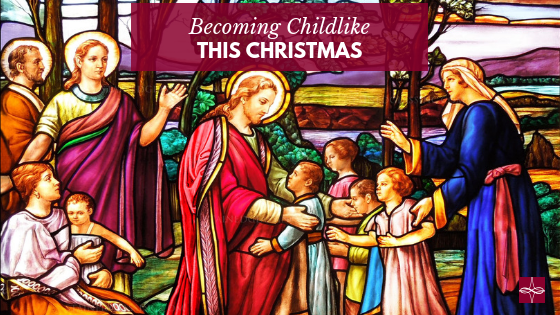

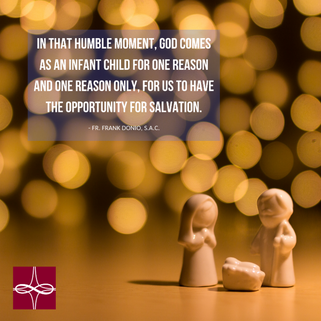
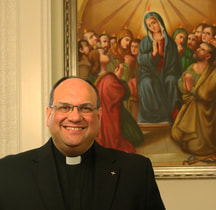
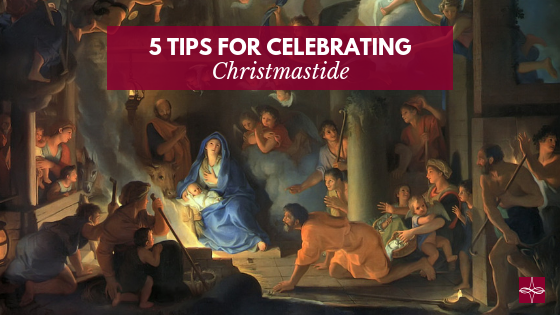



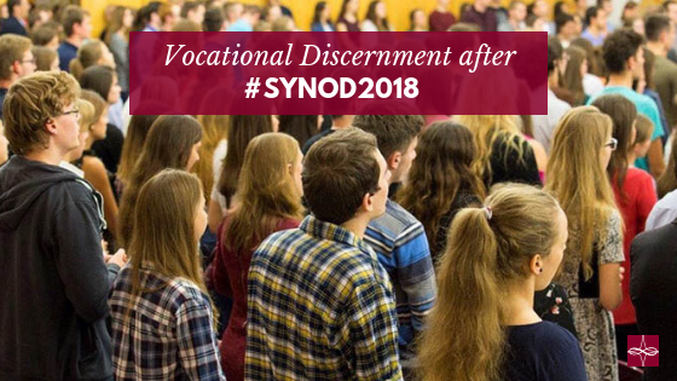
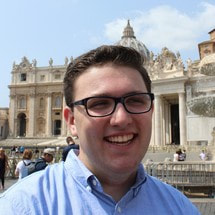
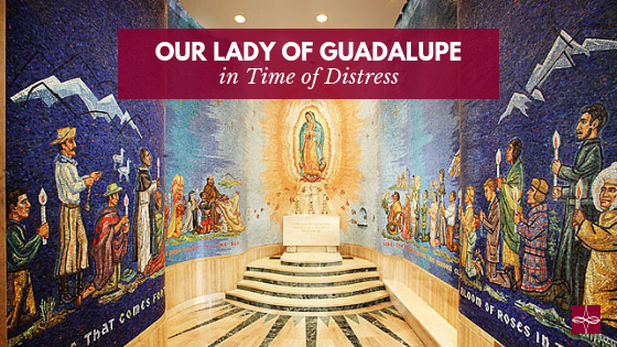
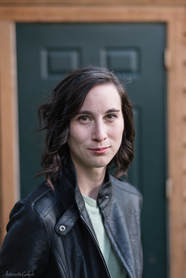
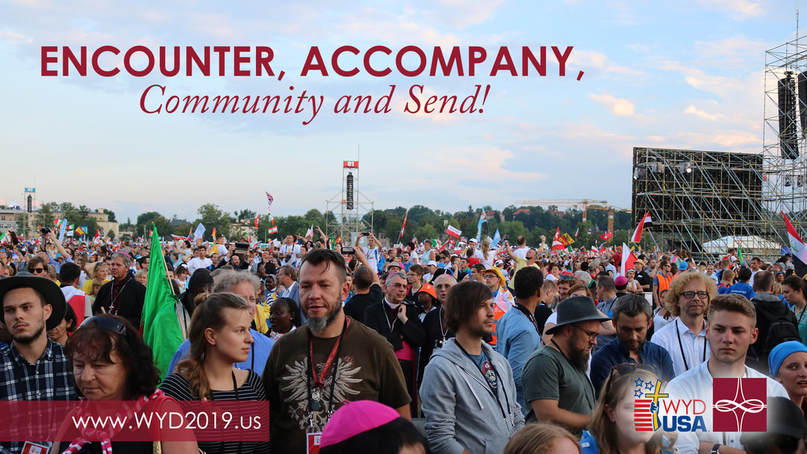
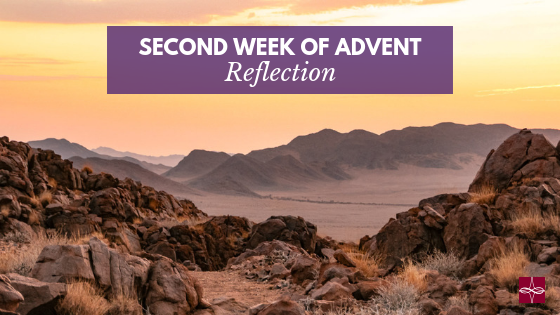
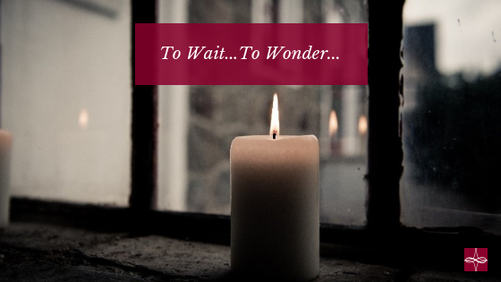

 RSS Feed
RSS Feed